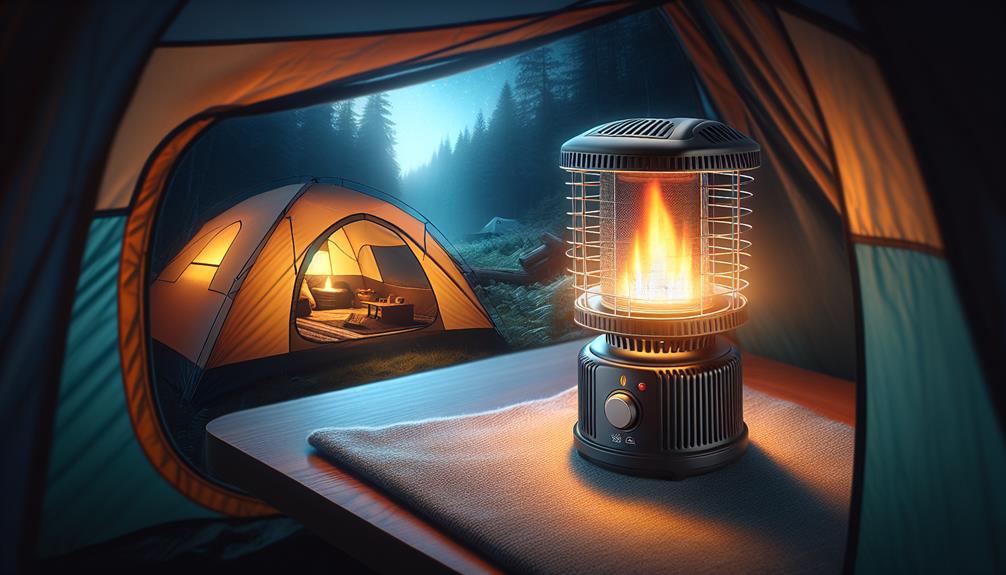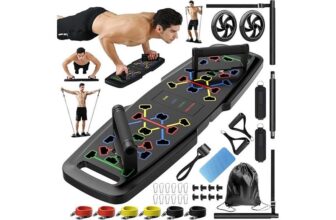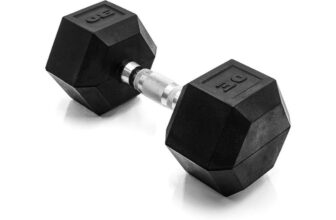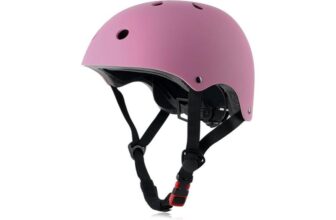Portable Propane Heaters

Portable propane heaters have become a popular choice for providing efficient and reliable heat in various settings. From outdoor events to emergency heating solutions, these heaters offer convenience and versatility.
However, with a vast array of options available on the market, it is essential to understand the benefits, types, and key features to make an informed decision. Additionally, safety precautions, maintenance requirements, and proper storage practices are crucial aspects to consider when utilizing propane heaters.
As we explore the world of portable propane heaters, uncovering the nuances of their operation and maintenance will lead to a more informed and secure heating experience.
Key Takeaways
- Efficient and versatile heating solutions for indoor and outdoor use.
- Diverse types cater to varying heating needs effectively.
- Safety tips ensure secure and proper usage of propane heaters.
- Maintenance guidelines for longevity and optimal performance.
Benefits of Portable Propane Heaters
Portable propane heaters offer an efficient and convenient heating solution for various indoor and outdoor applications. When it comes to cost efficiency, propane is a cost-effective fuel choice compared to electricity or other heating alternatives. This makes portable propane heaters an economical option for individuals looking to heat their spaces without breaking the bank.
In the realm of outdoor activities, portable propane heaters are a game-changer. Whether you're camping, fishing, or simply enjoying a backyard barbecue in the colder months, these heaters provide the perfect amount of warmth to keep you comfortable. Their portability allows for easy transportation and setup, making them ideal for on-the-go heating needs.
Furthermore, the instant heat provided by portable propane heaters ensures that you can quickly warm up your surroundings without any lengthy waiting periods. This feature is particularly advantageous during outdoor events or emergencies where immediate heat is essential. Overall, the cost efficiency and versatility of portable propane heaters make them a valuable asset for both indoor and outdoor heating requirements.
Types of Portable Propane Heaters
When exploring the realm of portable propane heating options, it is essential to consider the various types of heaters available to cater to diverse indoor and outdoor heating needs efficiently. Portable propane heaters come in different forms, each designed with specific features to suit various applications. One common type is the radiant heater, which provides instant heat and is ideal for smaller spaces due to its focused heating capacity. Another type is the convection heater, which is better suited for larger areas as it circulates warm air more effectively.
In terms of fuel efficiency, catalytic heaters are a popular choice. They operate by burning propane gas in a controlled manner, ensuring maximum heat output with minimal fuel consumption. These heaters are excellent for long periods of use without constant refueling. On the other hand, for those requiring higher heating capacity, forced-air propane heaters are a suitable option. These units can quickly heat large areas and are commonly used in construction sites or outdoor events where powerful heat output is necessary.
Each type of portable propane heater offers unique benefits, allowing users to choose the most suitable option based on their specific heating requirements.
Key Features to Consider
An essential aspect to consider when evaluating portable propane heaters is the key features that play a crucial role in determining their efficiency and suitability for specific heating needs. Efficient heating is a critical feature to look for in portable propane heaters. This involves the heater's ability to quickly and effectively warm up the surrounding area while conserving propane fuel.
Look for heaters with high BTU (British Thermal Unit) ratings as they indicate a higher heat output. Additionally, the availability of temperature control settings is vital for tailoring the heat output to suit different heating requirements. Some heaters offer adjustable thermostats or multiple heat settings, allowing users to regulate the temperature according to their preferences.
Portability features such as carrying handles or wheels can enhance the convenience of moving the heater to different locations. Consider the overall construction quality and safety features to ensure reliable performance and peace of mind during use.
Safety Tips for Propane Heater Usage
To ensure safe and effective usage of portable propane heaters, it is imperative to adhere to specific safety guidelines and precautions. When using these heaters, safety should always be the top priority. Here are some essential safety tips to keep in mind:
- Safety Precautions:
- Always read and follow the manufacturer's instructions carefully before operating the propane heater.
- Keep flammable materials such as curtains, papers, and furniture away from the heater to prevent any fire hazards.
- Do not leave the propane heater unattended while it is in operation.
- Proper Ventilation:
- Ensure that there is proper ventilation in the area where the propane heater is being used to prevent the build-up of carbon monoxide.
- Never use a propane heater in an enclosed space such as a bedroom or bathroom without proper ventilation.
- Consider using a carbon monoxide detector to ensure the safety of the indoor environment.
Maintenance and Storage Guidelines
Ensuring the longevity and optimal performance of portable propane heaters necessitates adherence to meticulous maintenance and storage protocols. Proper maintenance tips include regular inspection of the heater's components, such as the burner, regulator, hoses, and connectors, for any signs of wear or damage. Additionally, cleaning the heater regularly to remove dust, dirt, and debris is crucial for efficient operation.
When it comes to proper storage, it is essential to store the portable propane heater in a dry, well-ventilated area away from direct sunlight and moisture. Before storing the heater, ensure that it is completely cool to prevent any accidents. Properly coiling and storing the hose to prevent kinks and damage is also important for its longevity.
| Maintenance Tips | Storage Guidelines | ||
|---|---|---|---|
| Regular inspection of components | Store in a dry, well-ventilated area | ||
| Clean heater regularly | Keep away from direct sunlight and moisture | ||
| Check for signs of wear and damage | Ensure heater is completely cool before storage | ||
| Properly store hoses | Prevent kinks and damage while storing |
Frequently Asked Questions
Can Portable Propane Heaters Be Used Indoors?
When considering indoor safety and ventilation, it is crucial to address the risks associated with carbon monoxide exposure. Precautions should be taken to minimize these dangers, such as ensuring proper ventilation and utilizing carbon monoxide detectors.
It is recommended to avoid using portable propane heaters indoors due to the potential hazards they pose. Prioritizing safety by following guidelines and regulations is essential to mitigate any risks associated with indoor use of such devices.
Are Portable Propane Heaters Safe to Use in Enclosed Spaces Like Tents or Rvs?
When considering the safety of using propane heaters in enclosed spaces like tents or RVs, it is crucial to recognize the inherent carbon monoxide risks associated with these devices.
To mitigate these dangers, safety precautions such as ensuring proper ventilation, using carbon monoxide detectors, and following manufacturer guidelines are imperative.
How Long Does a Propane Tank Typically Last When Used With a Portable Heater?
When considering propane consumption and efficiency, the duration a propane tank typically lasts when used with a portable heater depends on factors like the heater's BTU rating, usage patterns, and tank size.
Refilling options and costs can vary based on the location and provider.
It is advisable to monitor propane levels, plan for timely refills, and consider the costs associated with refilling to ensure uninterrupted use of the portable heater.
Are There Any Special Ventilation Requirements When Using a Portable Propane Heater?
When utilizing any gas-fueled appliance, ensuring proper ventilation is crucial for maintaining indoor air quality and preventing potential health hazards. Ventilation considerations are paramount in creating a safe environment when operating propane heaters.
Adequate airflow is essential to dissipate combustion byproducts and minimize the risk of carbon monoxide buildup. Safety precautions such as opening windows or using exhaust fans can help mitigate these risks, ensuring a healthy and secure indoor space.
Can Portable Propane Heaters Be Used at High Altitudes?
Altitude compatibility is essential for safety and optimal performance when using portable propane heaters.
At high altitudes, the efficiency of these heaters may be affected due to lower oxygen levels, potentially leading to incomplete combustion and increased carbon monoxide production.
It is crucial to check the manufacturer's guidelines to ensure that the portable propane heater is suitable for use at elevated altitudes.
Proper maintenance and adherence to safety precautions are imperative in such conditions.
Conclusion
In conclusion, portable propane heaters offer efficient and convenient heating solutions for various indoor and outdoor spaces. With different types available, it is important to consider key features such as BTU output and safety mechanisms when selecting a heater.
Following proper safety tips, maintenance, and storage guidelines will ensure the safe and effective use of portable propane heaters. Imagine the warmth and comfort these heaters can provide in chilly outdoor settings or during power outages.








 Wishlist
Wishlist